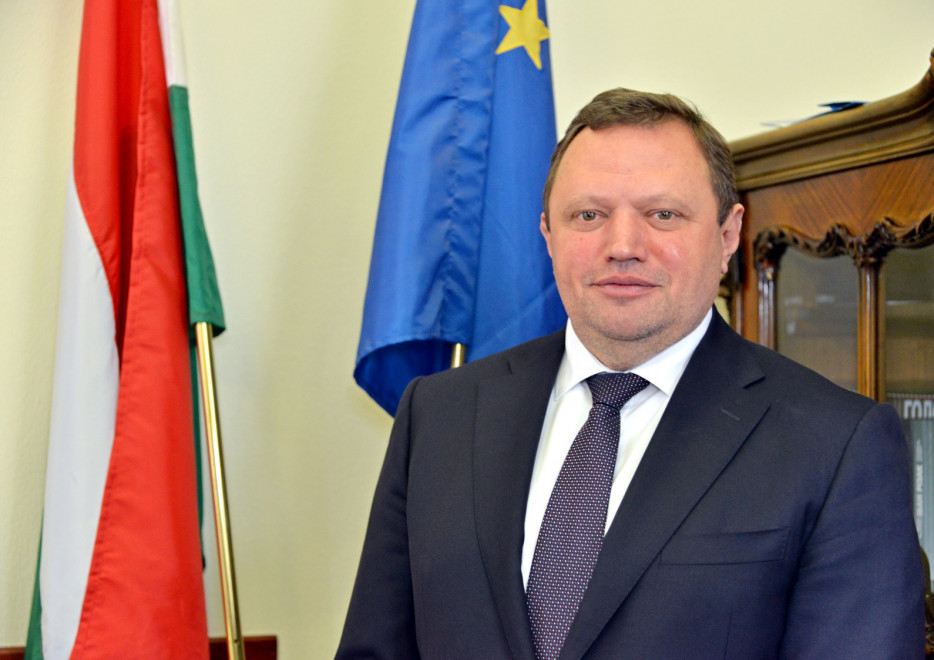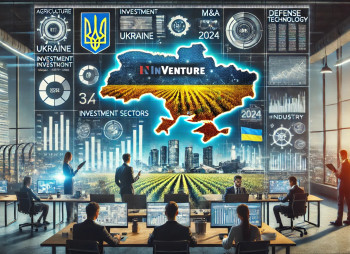How do you assess foreign relations between Hungary and Ukraine after new government in Ukraine took the office?
Our political relations have markedly activated. This is fairly beneficial for mutual relations in economics too.
After the visit of the foreign minister of Ukraine to Hungary in February 2016, we started to be planning and preparing still other meetings. We gratefully appreciate the fact that our prime ministers got connected with each other. We are happy that Ukrainian government is looking for ways to closer cooperation. This progress has become possible thanks to the Ambassador of Ukraine to Hungary, Liubov Nepop, as she knows Hungary well and speaks Hungarian fluently.
Recently, the PM Volodymyr Groysman met his Hungarian counterpart Viktor Orban where they marked mutually beneficial and strategic cooperation prospects in energy sector, agriculture and infrastructures. Would you please name real correspondent projects that can be realized in the nearest future?
The PM Groysman’s actions and steps give evidence to his pragmatic approach in our relations, and we appreciate his positive attitude in this respect. As an example, Ukrainian PM initiated a meeting with ambassadors of the Visegrad Four (Czech Republic, Hungary, Poland and Slovakia) and asked us to inform him personally on the issues which are considered as perspective from our viewpoints with regards to Ukraine. Such open and positive approach continued in Poland at the International Economic Forum, where PM Groysman met with presidents of the V4 in general meeting and carried private talks. I, for one, was present at the meeting of PM Viktor Orbu and Ukrainian PM Volodymyr Groysman. And I am confident that the talks will become a base for future effective cooperation. At this, the agreements were reached to form a bilateral meeting of experts who will make an action plan.
With regards to infrastructure, a real project was discussed on the bypass road near Beregovo, as it may become a continuation of Hungarian M3 highway heading to border with a further prospect of establishing of a new check point at the UA-HU border. In respect to energy sector – this is natural gas. At the meantime, agriculture has a vast number of prospects for cooperation. The Hungarian PM also drew attention to the necessity of cooperation in connection to Solotvino salt mine. This is an ecological issue, as too much salt gets into Tisa river and we have to take steps so that to prevent the aftermath problems for several countries.
Hungary is a TOP-15 investor into Ukraine with USD 600mln of direct investments. What are the most prominent investments from Hungary into Ukraine?
There were no major investment projects which can be mentioned during last 2.5years on Hungarian part. Except for one pellet production project in Trans Carpathian region in Tyachiv, where USD 11mln were channeled to expanding of the manufacturing facility of pellets. Meantime, the largest Hungarian investor into Ukraine is OTP group. In Q1/2015 alone, OTP Ukraine received investments worth USD 110mln. As soon as the war ends, the investment issues will change fundamentally for better. Economic cooperation is possible in peaceful times.
What Hungarian companies reveal interests to invest into Ukraine (please give some examples), and what sectors are the most attractive for them?
I cannot name any specific companies, even if I wish to, until the companies decide for themselves to make plans public. However, I can declare that our government has worked out a support program for the Trans Carpathian region in the following sectors of Ukraine's economy, that is, agriculture, food processing, and tourism. In particular, the interests are in a processing of fruits, and milk, as well as in construction of hotels and thermal mineral water complexes.
What factors deter Hungarian investors the most from investing into Ukraine? You mentioned war in the East, of the same respect you may go on with the macroeconomic situation, slow economic growth, corruption, risks of protection of the property rights, or maybe you know some other?
All of the factors you have mentioned scare not only the Hungarian investors, but also other foreign investors. Both the IMF and the European Union have repeatedly pointed to the factors that prevent foreign investors to come to Ukraine. There is no need to repeat them, although I would like to emphasize the impact of the problem of asset-grabbing, and, of course, unfavorable legal conditions in the economy. If Ukraine wants to stop the outflow of capital or even attract investors, it should at the first place establish peace; and, secondly, once again, to create the necessary legal stability in the economy. The important thing is that everyone can see a desire of the government and parliament to overcome those obstacles, and the results have to be clearly seen. We already have seen the first results, and we are confident that the obstacles will be overcome.
Due to the devaluation of the national currency, the factors of production in Ukraine are becoming more attractive to foreign investors. Do you think it can help to stimulate the capital inflows from Hungary into Ukraine?
Definitely, it can. But the devaluated national currency is only one of the elements necessary to attract foreign investors. The investments should always be considered as a set of different factors. Investors are interested not only in exchange rates. They also consider different risks and other conditions of doing business in the country.
Does Ukraine fully inform Hungarian investors about investment opportunities in Ukraine?
I am sure that the Ukrainian Embassy in Hungary is doing plenty to introduce Hungarian investors with investment opportunities in Ukraine. We know that there are conferences, seminars, round tables, business meetings of the kind. On the other hand, the Hungarian Embassy in Ukraine also attracts representatives of the Hungarian business community into Ukraine. Over the past 2 years, now we will be organizing the fourth in a raw Hungarian-Ukrainian business and investment forum in Ukraine where Hungarian businessmen are invited. Such forums were in Kyiv, Dnipro, Odessa, and the fourth one is to be held in Kharkiv on October 28.
What areas do Ukrainians consider for investments in Hungary? Are investors withdrawing money from Ukraine?
The latter part of the question has to be addressed to the National Bank of Ukraine, as they may have precise data on the issue. In respect to the first part, I can say that for Ukrainian investors, in addition to buying a property in Budapest or in the resort towns of Hungary, it can be attractive to invest in tourism, transportation and logistics services, or to place a production facility in Hungary, as a member of the EU and the large European market.
In trade relations between Ukraine and Hungary, certain changes and transformations have happened. Particularly, in H1/2016 the exports from Ukraine increased by 27.5% y/y amounting to USD 536mln, while imports from Hungary reduced more than twice to USD 415mln in y/y terms for the corresponding period. Can you please give some comments?
It will be difficult to comment, as the figures from the Hungarian Central Statistical Office differ and reveal other trends for this year. The statistics on foreign trade is gathered according to the EU regulations in Hungary. According to our estimates, imports from Ukraine increased by 11% y/y to USD 569mln in H1/2016, while exports from Hungary to Ukraine increased by 5.4% y/y to USD 788mln. In the latter case, we have a significant discrepancy that requires thorough analysis, involving specialists from both sides. According to our data, the trade turnover increased in both directions. It gives hope that the unfavorable period of foreign trade between the two countries is over, and we must build our plans for further development and growth.
According to UNCTAD World Investment Report 2016, FDI in Hungary amounted to USD 92bn compared to USD 62bn in Ukraine. Considering that Ukraine's population is 4.5 times bigger than in Hungary, what Ukraine has to do in order to build effective state policy to attracting investments and regulating the investment activities?
Large investors are to be treated individually, practically at the government level. For this purposes, we created Investment and Trade Development Agency and worked out preferences and subsidies designed for different regions of Hungary, subject to the uniform development of the Hungarian economy as a whole. Professional trainings of specialists upon request, a sound banking system and low interest rates, these conditions are put together to help companies to invest more and more. The easiest way to attract foreign investors is to showcase local investors willing to invest and develop. It sounds much more convincing than any beautiful presentation.






